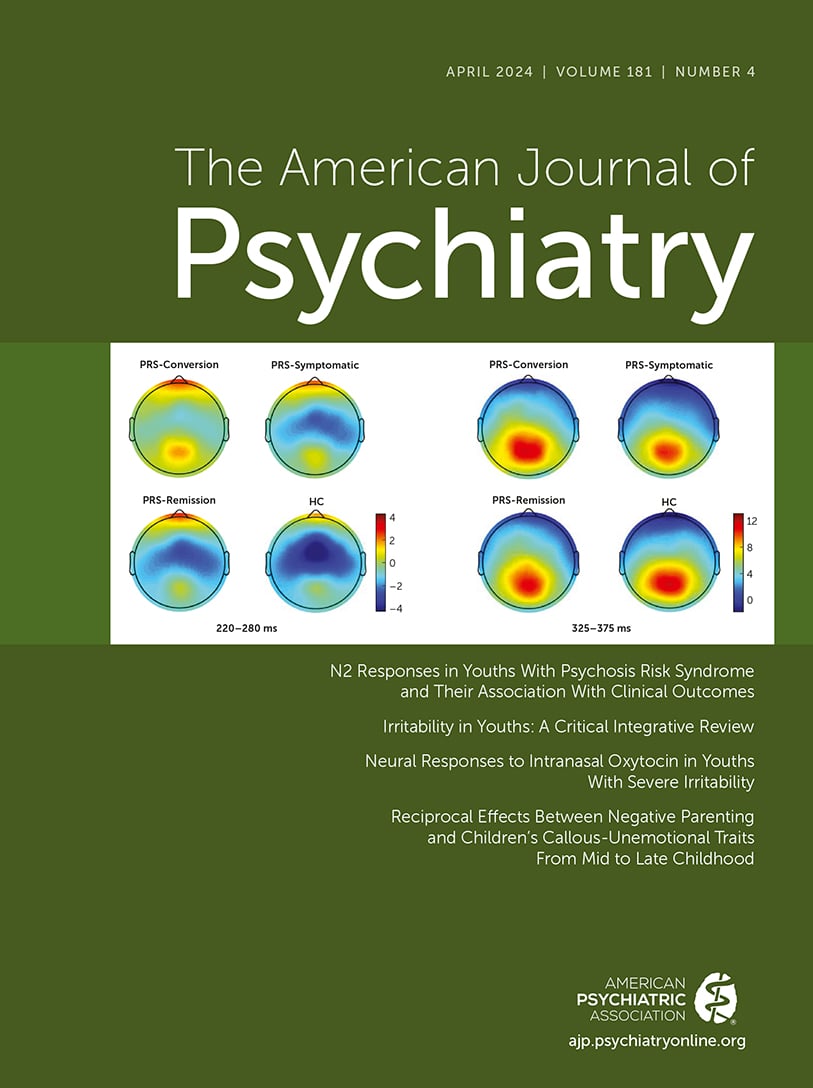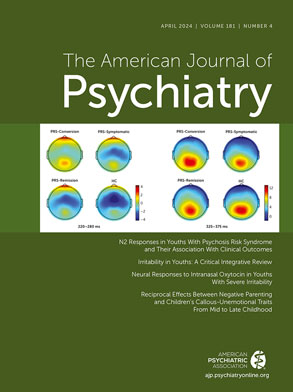Irritability in Youths: A Critical Integrative Review
Abstract
Get full access to this content
View all available purchase options and get full access to this content.
Information & Authors
Information
Published In
History
Keywords
Authors
Details
Ellen Leibenluft, M.D. leibs@mail.nih.gov
Laura E. Allen, M.D.
Robert R. Althoff, M.D., Ph.D.
Melissa A. Brotman, Ph.D.
Jeffrey D. Burke, Ph.D.
Gabrielle A. Carlson, M.D.
Daniel P. Dickstein, M.D.
Lea R. Dougherty, Ph.D.
Spencer C. Evans, Ph.D.
Katharina Kircanski, Ph.D.
Daniel N. Klein, Ph.D.
Eleanor P. Malone, B.A.
Carla A. Mazefsky, Ph.D.
Joel Nigg, Ph.D.
Susan B. Perlman, Ph.D.
Daniel S. Pine, M.D.
Amy Krain Roy, Ph.D.
Giovanni A. Salum, M.D., Ph.D.
Amy Shakeshaft, Ph.D.
Jamilah Silver, M.A.
Joel Stoddard, M.D., M.A.S.
Anita Thapar, M.D., Ph.D.
Wan-Ling Tseng, Ph.D.
Pablo Vidal-Ribas, Ph.D.
Lauren S. Wakschlag, Ph.D.
Argyris Stringaris, M.D., Ph.D.
Notes
Funding Information
Metrics & Citations
Metrics
Citations
Export Citations
If you have the appropriate software installed, you can download article citation data to the citation manager of your choice. Simply select your manager software from the list below and click Download.
For more information or tips please see 'Downloading to a citation manager' in the Help menu.
Figures
Tables
Media
Share
Share
Get Access
Get Access
Login options
Already a subscriber? Access your subscription through your login credentials or your institution for full access to this article.
Personal login Institutional Login Open Athens loginPurchase Options
Purchase this article to access the full text.
PPV Articles - American Journal of Psychiatry
Not a subscriber?
PsychiatryOnline subscription options offer access to the DSM-5-TR® library, books, journals, CME, and patient resources. This all-in-one virtual library provides psychiatrists and mental health professionals with key resources for diagnosis, treatment, research, and professional development.
Need more help? PsychiatryOnline Customer Service may be reached by emailing PsychiatryOnline@psych.org or by calling 800-368-5777 (in the U.S.) or 703-907-7322 (outside the U.S.).

